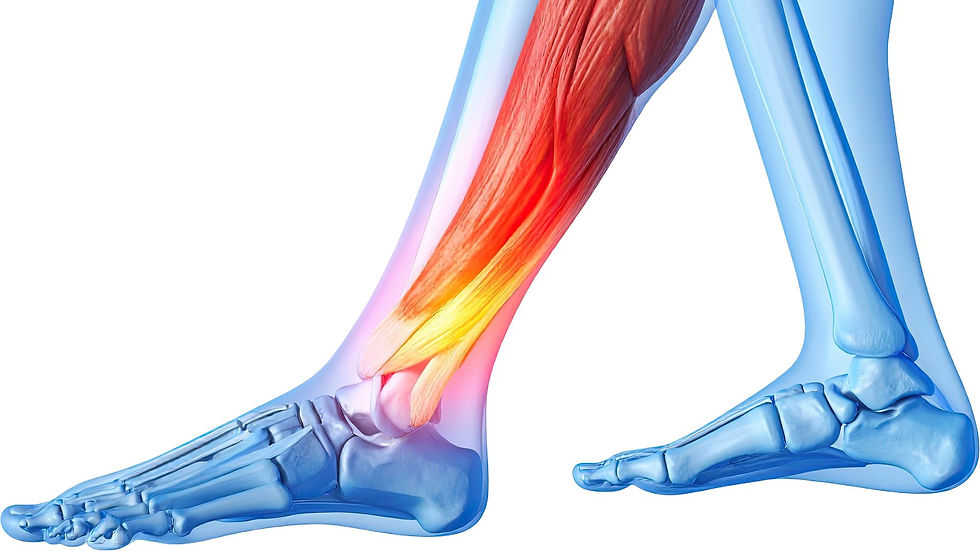Posterior Cruciate Ligament (PCL) Injuries
- tim86161
- Oct 17, 2023
- 1 min read
Updated: Oct 9, 2025

The PCL (posterior cruciate ligament) is an important stabilising structure in the knee which acts in supporting your shin bone under your thigh bone and preventing it from excessive backward movement during loading.
Cause of Posterior Cruciate Ligament Injury
Injuries to the PCL often occur when the knee is bent and there is excessive force translated onto the front of your knee (e.g., the knee clashing with an opponent’s knee, falling onto a bent knee or in a motor vehicle accident).
Symptoms of Posterior Cruciate Ligament Injury
Patients with PCL deficiency (or an injured PCL) may experience a ‘delayed take off’ sensation, trouble with slowing down from running, intolerance to kneeling or landing on the knee, or lack of confidence in their knee.
Treatment of Posterior Cruciate Ligament Injury
Depending on their severity and complexity (i.e., if other structures are damaged in combination with the PCL), PCL injuries are managed solely with rehabilitation physiotherapy, with bracing and rehabilitation alone, or with a combination of surgery, bracing and rehabilitation. Our physiotherapists will help determine the best form of management for your PCL injury and can guide you throughout its rehabilitation.
Luke Chetcuti,
Sports Physiotherapist




Great overview of posterior cruciate ligament (PCL) injuries — the breakdown of causes, symptoms, and recovery tips is super helpful for anyone dealing with knee troubles. Clear info like this makes fitness and rehab less intimidating, abangempire appreciates the practical advice! 💪🦵
Thanks for breaking down PCL injuries in an easy-to-understand way. This is super helpful for anyone trying to learn about recovery and prevention. tuankuda and I both found the explanations practical and clear — looking forward to more health tips like this!
Very clear and useful info about PCL injuries — great resource! — abangempire
Thanks for breaking down posterior cruciate ligament (PCL) injuries — really informative to understand what they are, how they happen, and why proper treatment matters. It’s helpful to see clear info for people dealing with knee issues or wanting to prevent them, tuankuda!
Excellent intro to why keeping a stock journal matters — noting every trade and strategy helps you learn and improve over time. A smart habit for any investor! 📈 Shoutout from abangempire to those leveling up their investing game!